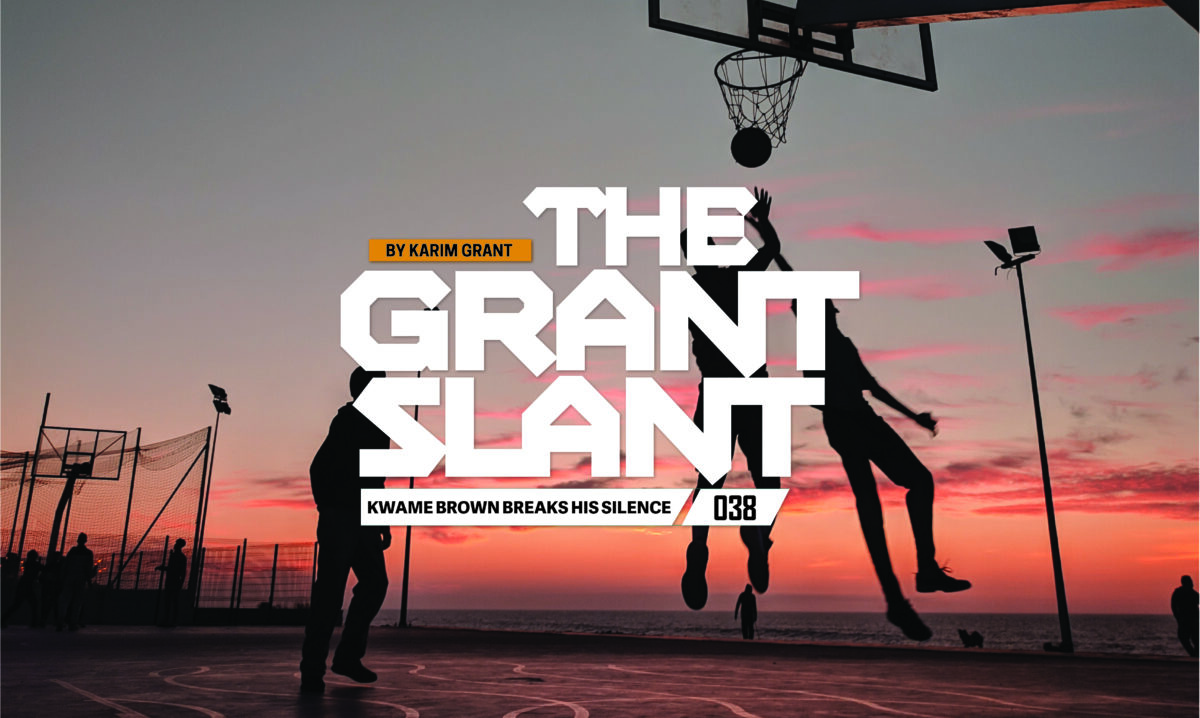Over 500,000 minutes ago the world witnessed nine minutes of horror that reverberated a resounding, collective deep sigh of exasperation that signalled for a change to humanity. George Floyd was murdered by a police officer. His death recorded for the world to see. In the wake of this injustice, people of all races have had to come to grips with uncomfortable conversations about race and equality. Within Black communities many have taken a closer look at our own existence in a world where we are often seen as less than, while delving into issues that we ourselves face collectively as our own Blackness is redefined and constantly questioned.
Retired NBA players Matt Barnes and Stephen Jackson have engineered a wildly popular podcast called “All The Smoke.” Guests range from former professional basketball players to coaches to team owners, and conversations are casual and candid, covering both life on and off the court. In a recent interview with former NBA All-Star Gilbert Arenas, the “All The Smoke” duo took aim at Kwame Brown, a 12-year NBA veteran, who is widely known in media and sporting circles as being a disappointment. Expectations were high when he was drafted first overall pick of the Washington Wizards in 2001, but his production on the court was less than spectacular. That said, he did remain a rotational, serviceable player for 12 years in the league, playing for multiple teams throughout his career.
Barnes and Jackson are not the first to ever call out Brown’s lackluster career. This rhetoric has been reported for many years. But this time, Brown, clearly frustrated with being the butt of many jokes for nearly two decades, decided enough was enough. In his nearly hour-long tirade on social media, he labeled Jackson a fake gangster turned fake social justice warrior, while reminding his followers about the personal misdeeds of Barnes and his love triangle. It got ugly. Super ugly. It begs the question: Where have you been all these years, Kwame?
I’ve been f—ed over, left for dead, dissed and forgotten
Luck ran out, they hoped that I’d be gone, stiff and rotten
Y’all just piss on me, shit on me, spit on my grave
Talk about me, laugh behind my back, but in my face
Y’all some well-wishers, friendly-acting, envy-hiding snakes
With your hands out for my money, man, how much can I take?
— Nas, “Ether”
Kwame Brown unleashed a tongue-lashing of epic proportions aimed squarely at those who have besmirched his name and legacy. He held no punches when he directed his southern-drawled rant that spewed venomous insults towards Matt Barnes, Stephen Jackson, “The Breakfast Club” host Charlamagne tha God and ESPN reporter/analyst Stephen A. Smith.
Brown’s rant gave light to a pervasive sentiment that has been ailing Black communities for quite some time, whereby Black celebs directing negative narratives at fellow Black celebs has become common place. A rhetoric that has allowed many to step on the toes and accomplishments of others to simply gain an edge or advantage in their careers.
Brown’s detractors have highlighted his on-court misgivings rather than honouring the way he created generational wealth for an entire family – the real accomplishment.
Kwame Brown has earned $65 million in his 12-year career as a professional basketball player, changing the lives of many people around him, including his mother who he often mentions as his inspiration. To make $65 million in any profession is a noteworthy accomplishment – one that even the most esteemed doctors and lawyers cannot claim. Yet still, Brown’s detractors have highlighted his on-court misgivings rather than honouring the way he created generational wealth for an entire family – the real accomplishment.
“Where the plans was to get funds and skate off the set
To achieve this goal quicker, sold all my weight wet
Faced with immeasurable odds, still I get straight bets
So, I felt I’m owed something and you nothing, check
I’m from the other side where the other guys don’t walk too much
And girls from the projects wouldn’t f— us, said we talked too much.”
— Jay-Z, “Where I’m From”
Kwame Brown’s success is not only his, but his family’s and his Brunswick, Georgia community’s as well. You see, the goal is to make it out of the ’hood and take your folks along with you for the glorious ride. It’s what young athletes dream about in their formative years while they etch out an existence worth noting in their chosen sports. Too often, we forget the struggle professional athletes have been through and are drawn to deliver poignant analyses on how we feel an athlete should be performing. In doing so, we tear down the same fabrics that often provide inspiration to other young athletes.
Too often, we forget the struggle professional athletes have been through and are drawn to deliver poignant analyses on how we feel an athlete should be performing.
Barnes, Smith and Jackson have spoken disparagingly about Brown’s career, and they aren’t the only ones. A plethora of analysists have chimed in over the years about Brown being one of the biggest busts in NBA history. From my estimation, too much value is placed on that number one pick, a pick that has rarely seen the manifestation of expected greatness. During the last 20 years of the NBA draft, merely a handful of players have lived up to expectation – i.e., LeBron James, Kyrie Irving – who are really the only legitimate first ballot hall of famers to be selected first overall. To suggest that the rest of those selected first overall are failures or “busts” is an incredible disrespect to them and the shoulders of the pioneers they stand on.
In a world where many young Black boys don’t see past their 21st birthdays, whose fates are often met by untimely death or incarceration, there must be a place where we hold those that make it out of their own depraved matrixes in high esteem. A place where they are applauded just for making the team, signing the contract, and changing the trajectories of the people around them. For simply surviving.
George Floyd rests heavily in our minds. The reoccurring trauma that exists within Black communities cannot be undersold or understated. Tearing down the achievements of others to create clickable moments for the masses has become par for the course. It has also created a culture that allows for the festering of the crabs in a bucket mentality. A mentality that continues to hold Black communities down internally, while external forces continue to do the same – nine minutes at a time.
Photo by Chbani Med from Pexels




Comments are closed.